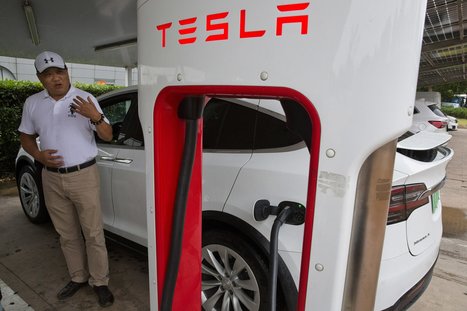More than 200 manufacturers, including Tesla, Volkswagen, BMW, Daimler, Ford, General Motors, Nissan, Mitsubishi and U.S.-listed electric vehicle start-up NIO, transmit position information and dozens of other data points to government-backed monitoring centers, The Associated Press has found. Generally, it happens without car owners’ knowledge.
The automakers say they are merely complying with local laws, which apply only to alternative energy vehicles. Chinese officials say the data is used for analytics to improve public safety, facilitate industrial development and infrastructure planning, and to prevent fraud in subsidy programs.
.../...
According to national specifications published in 2016, electric vehicles in China transmit data from the car’s sensors back to the manufacturer. From there, automakers send at least 61 data points, including location and details about battery and engine function to local centers like the one Ding oversees in Shanghai.
Data also flows to a national monitoring center for new energy vehicles run by the Beijing Institute of Technology, which pulls information from more than 1.1 million vehicles across the country, according to the National Big Data Alliance of New Energy Vehicles. The national monitoring center declined to respond to questions.
Those numbers are about to get much bigger. Though electric vehicle sales accounted for just 2.6 percent of the total last year, policymakers have said they’d like new energy vehicles to account for 20 percent of total sales by 2025. Starting next year, all automakers in China must meet production minimums for new energy vehicles, part of Beijing’s aggressive effort to reduce dependence on foreign energy sources and place itself at the forefront of a growing global industry.



 Your new post is loading...
Your new post is loading...








China has already implemented V2I (Vehicle to Infrastructure) Communications for every automaker and without necessarily car owner's knowledge nor consent.
V2G (Vehicle to Governement) might be next.